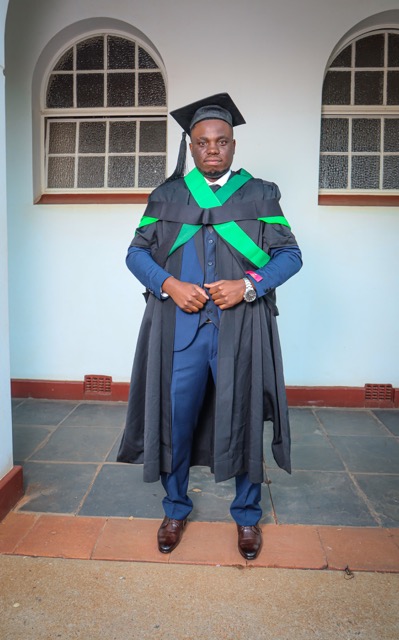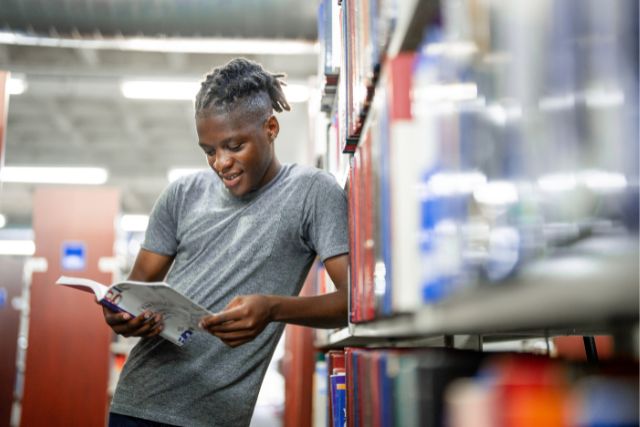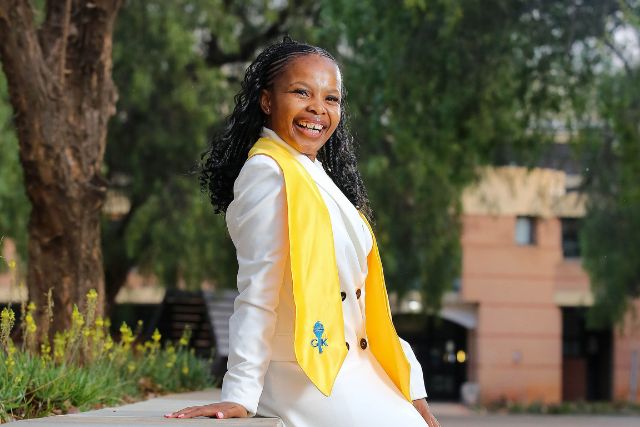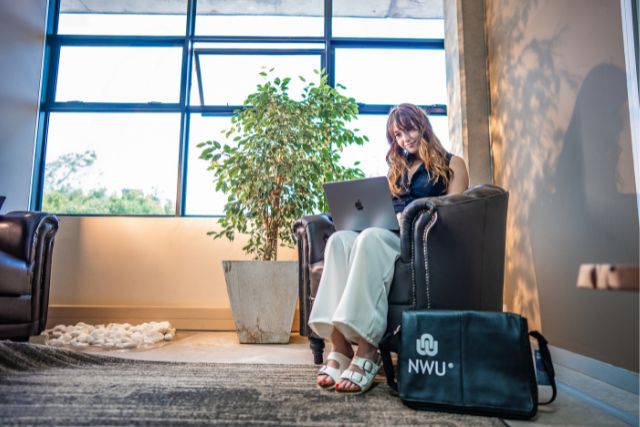If curiosity could be a superpower, Thabiso Owen Machipi would be wearing the cape. As a kid, he had a relentless "why?" for everything, from questioning TV plots to chasing the mysteries of exploding stars. That spark led him from the vastness of astrophysics into the intricate world of nuclear engineering, where the stakes are high and the math is merciless. Now, as a PhD candidate at North-West University, he’s tackling uncertainty in nuclear reactors with advanced modelling and statistical wizardry, all while keeping a sense of humour about broken code and the chaos of research life. We sat down with Thabiso to unpack how one mind can hold galaxies and reactor cores in the same breath, and why patience is as essential in science as the equations themselves.

What first drew you to physics, and how did that curiosity evolve into a PhD in Nuclear Engineering?
Honestly, curiosity mixed with a little bit of chaos. I was that kid who always asked “why?”. Sometimes to the point of getting kicked out of the living room for questioning the plot of soapies. Physics gave me the tools to make sense of the world (and space, lots of space by the way). I started off in astrophysics chasing exploding stars and gamma rays, and now I’m in nuclear engineering working on things that don’t explode, hopefully. I wanted to apply my skills to something that could make a real-world impact, like energy and safety, and nuclear engineering had the right mix of complexity and purpose.
You've done research in both astrophysics and nuclear engineering. What are some unexpected connections or skills that overlap between these two worlds?
More than you would think. Both involve very complex systems where things go sideways if you ignore uncertainty. Whether it’s particles from a supernova or neutrons in a reactor core, you are still doing simulations, coding, and trying to get your models to behave. Furthermore, the mathematics remains consistently challenging in each case. In fact, perhaps the most significant takeaway is mastering the art of maintaining composure when your code fails for the 14th time in a single day.
PhD work is no joke, especially in a field like Nuclear Engineering. Can you break down what your research is all about in simple terms for those of us who aren't scientists?
Nuclear reactors are complex systems where many factors interact, and there is always some uncertainty in how they behave. My research focuses on improving the computer models that predict reactor performance by better accounting for these uncertainties. I use advanced mathematical and statistical methods to make these predictions more accurate and reliable. This helps ensure nuclear reactors can be designed and operated safely, even when unexpected conditions arise.
You've led teams as General Manager and taught students as a Physics Tutor. How do you balance the analytical mindset of a scientist with the leadership and mentoring side of your personality?
I usually drink coffee and talk a lot, but seriously, I have learned that people and equations both need patience. In management, I had to lead teams and deal with logistics, while in tutoring, I had to help students untangle some intimidating concepts. In both, you need to communicate clearly, listen well, and adapt when things don’t go to plan (which happens a lot, by the way). Science trains your brain to think logically, but working with people trains your heart to care, and I like keeping both sharp.
Looking at your technical skills, Python, R, and Monte Carlo simulations, how have NWU resources (labs, supervisors, coursework) helped you sharpen those tools?
NWU has been my playground in the best possible way. From labs to coursework, and especially from my supervisors, I have had great support to explore and grow. My supervisors don’t just hand me problems; but instead, they challenge me to come up with solutions and dig deeper. I have had access to everything I need to run simulations, test ideas, and fail spectacularly, then figure out why. That trial-and-error space is where I really learned to master these tools.
What does a typical day in your PhD life look like? (Or is there even such a thing as 'typical' day?)
The mythical ”typical day”, I have heard of it. Some days I’m deep in code, running simulations, and feeling like Einstein. Other days, I spend two hours fixing one bracket in Python and wonder why I didn’t become a chef instead. But most days are a mix of reading, coding, meetings, and Googling error messages. I also try to make time to stretch, hydrate, and remember that I’m more than just a brain with a deadline.
Beyond academics, how has NWU helped you grow on a personal or professional level?
NWU has taught me that growth is not just about books and assignments, it’s about people, pressure, and perseverance. I have become more confident, more open to collaboration, and way better at handling challenges. The environment encourages you to be a well-rounded individual, not just an academic machine. I have learned to manage time, lead teams, and even have conversations that are not just about research (a real skill,
trust me).
NWU students often mention how impactful it is to have mentors who genuinely care. What was your approach as a tutor and lab facilitator when it came to helping students succeed?
For me, it was simple: make science feel human. I always tried to create a space where students could ask “silly” questions without fear. I told them about the times I got things wrong and how I bounced back. Being honest about my own journey helped them relax and see that it’s okay to struggle. I also cracked a lot of (bad) jokes in tutoring sessions. If you can laugh while learning physics, you are winning.
What advice would you give to young students who feel intimidated by fields like physics, engineering, or data science?
Don’t let the fancy terms scare you; even the experts started with zero knowledge. These fields are not about being a genius; they are about being curious, consistent, and brave enough to try. And fail. And try again. Start small, ask questions, and remember that confusion is part of the process. If you love it, you belong in it.
Lastly, when you're not solving equations or running simulations, what's your favourite way to recharge and find inspiration?
Music is my therapy, sometimes gospel, sometimes whatever YouTube decides. I also love being outdoors or spending time with people who make me laugh (and don’t ask me about matrix inversions). A good laugh, a long walk, and a break from screens, that’s how I reset.



